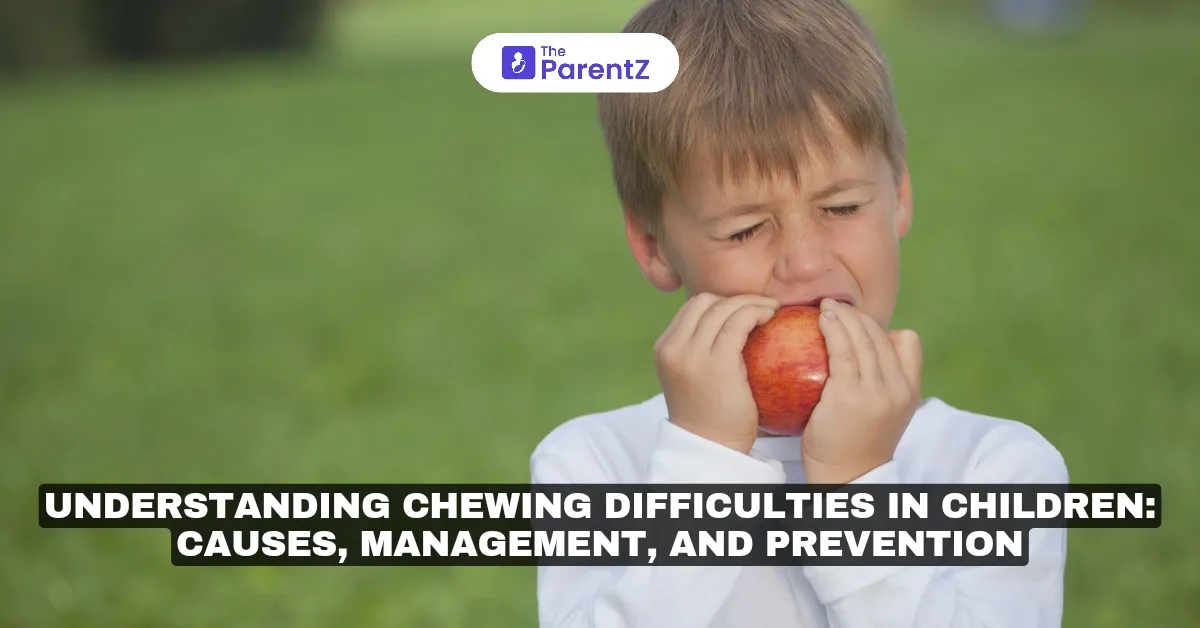Chewing is a critical function for a child’s growth and development, impacting nutrition, speech, and overall health. However, some children face challenges in chewing due to various medical and dental conditions. This article explores the causes, types, incidence, and management of chewing difficulties, providing guidance for parents and caregivers.
Children at Risk of Chewing Difficulties
Certain groups of children are more likely to experience chewing difficulties:
1. Premature Birth or Low Birth Weight: These children may have underdeveloped oral muscles or coordination issues.
2. Neurological Conditions: Children with cerebral palsy, Down syndrome, or autism spectrum disorders may struggle with oral-motor control.
3. Congenital Abnormalities: Conditions like cleft lip and palate can hinder chewing abilities.
4. Dental Problems: Severe cavities, missing teeth, or malocclusion (misaligned teeth) may interfere with efficient chewing.
5. Behavioral and Emotional Issues: Anxiety or sensory sensitivities can make chewing uncomfortable for some children.
Global and Indian Incidence of Chewing Difficulties
Globally, chewing difficulties in children are a growing concern:
• Global Statistics: Studies show that 1 in 20 children worldwide have some form of oral-motor dysfunction, often leading to feeding and speech issues.
• Indian Context: India has a higher prevalence of dental caries, malnutrition, and congenital oral defects, contributing to chewing challenges. About 30% of Indian children with developmental disorders report feeding and chewing difficulties.
Common Chewing Problems in Children
1. Oral-Motor Dysfunction:
Difficulty in coordinating tongue and jaw movements necessary for chewing.
2. Dental Caries and Tooth Loss:
Decayed teeth can cause pain, making chewing difficult and leading to food avoidance.
3. Malocclusion:
Misaligned teeth may prevent proper mastication.
4. Temporomandibular Joint Disorders (TMD):
Pain or dysfunction in the jaw joint can hinder chewing movements.
5. Cleft Lip and Palate:
Structural abnormalities can impede chewing and swallowing.
6. Sensory Processing Disorder:
Sensitivity to certain food textures can make chewing uncomfortable or even distressing.
Management of Chewing Difficulties
1. Medical and Dental Interventions:
• Dentists: Treat caries, correct malocclusion, or provide prosthetic solutions for missing teeth.
• Pediatricians: Address underlying medical conditions, such as malnutrition or developmental delays.
• Speech-Language Pathologists: Help with oral-motor therapy to improve coordination and strength in chewing muscles.
• Orthodontists: Correct structural issues such as malocclusion.
• ENT Specialists: Manage conditions like enlarged tonsils or adenoids that may restrict chewing.
2. Therapeutic Support:
• Oral-Motor Therapy: Exercises to strengthen jaw, tongue, and lip muscles.
• Behavioral Therapy: Techniques to address sensory or behavioral challenges related to food.
3. Nutritional Adjustments:
• Focus on soft, easily chewable foods like mashed vegetables, smoothies, or purees.
• Gradually introduce textures as the child improves.
Prevention of Chewing Difficulties
1. Prenatal Care: Proper prenatal nutrition and healthcare reduce the risk of low birth weight and congenital abnormalities.
2. Dental Hygiene: Regular brushing, flossing, and dental check-ups prevent cavities and gum disease.
3. Early Intervention: Address developmental delays and feeding issues promptly.
4. Nutrition: Ensure a balanced diet to promote oral and overall health.
When to Seek Professional Help
Parents should consult the following specialists if their child shows persistent chewing difficulties:
• Pediatric Dentists for dental-related issues.
• Speech-Language Pathologists for oral-motor dysfunction.
• Occupational Therapists for sensory processing challenges.
• ENT Specialists for structural or airway concerns.
• Pediatricians for overall health assessments.
A Note for Parents
If your child is experiencing chewing difficulties, remember that with the right interventions, most issues can be resolved or significantly improved. Consult specialists early, follow their guidance, and stay patient. You’re not alone, and this journey, though challenging, can lead to a healthier and happier future for your child.
It’s going to get better. Don’t be scared, you’ve got this!








Be the first one to comment on this story.